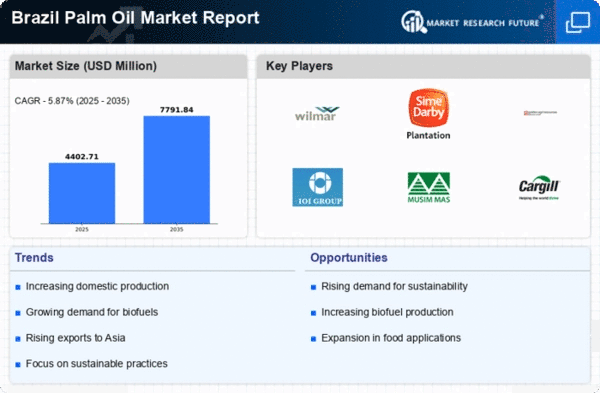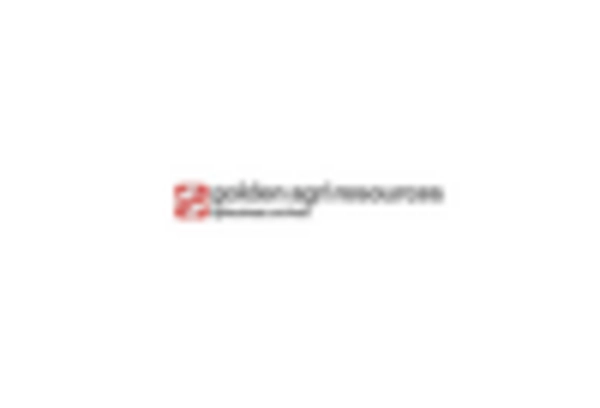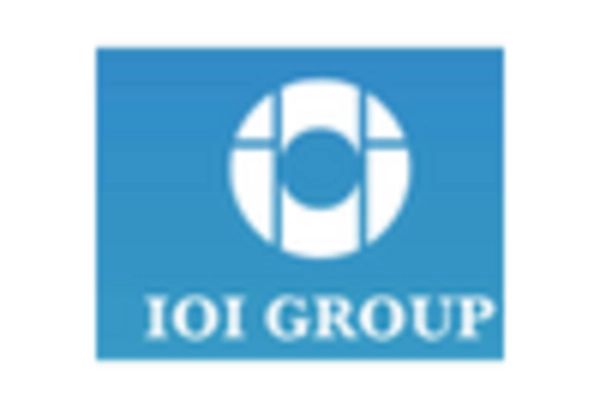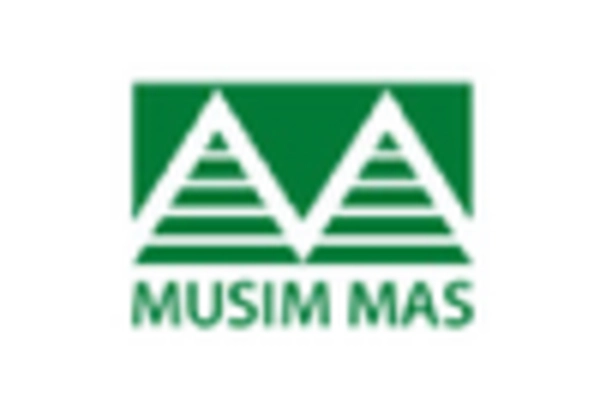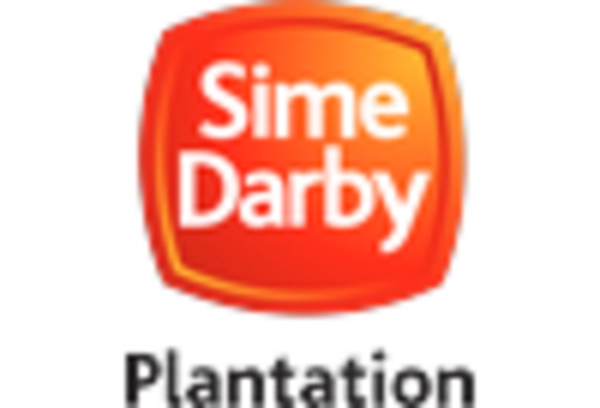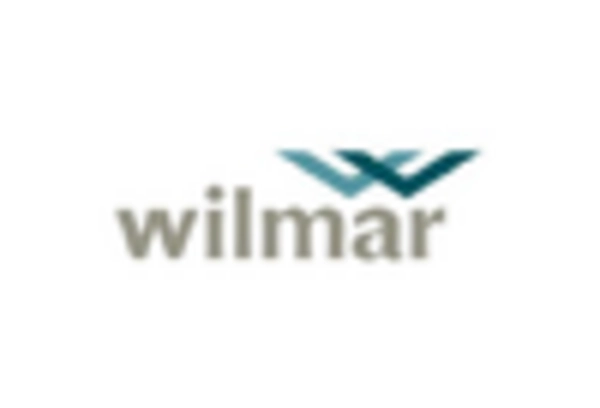Growing Demand for Biofuels
The palm oil market in Brazil is significantly influenced by the rising demand for biofuels, particularly biodiesel. As Brazil continues to prioritize renewable energy sources, the palm oil market stands to benefit from this trend. The government has set ambitious targets for biofuel production, aiming for a blend of 10% biodiesel in diesel fuel by 2025. This policy is expected to drive up the demand for palm oil as a feedstock, potentially increasing its market share. In 2025, the biodiesel sector is projected to require approximately 1.5 million tonnes of palm oil, which could lead to a substantial increase in production and investment in the palm oil market. This growing demand not only supports energy security but also contributes to economic growth in rural areas.
Consumer Awareness and Preferences
Consumer awareness regarding health and environmental issues is shaping the palm oil market in Brazil. As consumers become more informed about the implications of their food choices, there is a growing preference for products that are sustainably sourced. This trend is influencing the palm oil market, as manufacturers are increasingly seeking certification for sustainable palm oil to meet consumer demands. In 2025, it is estimated that around 30% of consumers in Brazil will actively seek out sustainably sourced palm oil products. This shift in consumer behavior may compel producers to adopt more sustainable practices, thereby enhancing the market's reputation and potentially increasing sales. The palm oil market must adapt to these changing preferences to remain competitive.
Investment in Infrastructure Development
Investment in infrastructure development is emerging as a critical driver for the palm oil market in Brazil. Improved transportation networks, such as roads and ports, facilitate the efficient movement of palm oil products from plantations to processing facilities and markets. This enhancement in logistics is likely to reduce costs and increase the competitiveness of the palm oil market. Furthermore, the Brazilian government has allocated significant funds for infrastructure projects, which are expected to bolster agricultural productivity. As a result, producers may find it easier to access both domestic and international markets, potentially leading to an increase in exports. The palm oil market could see a rise in production capacity, thereby enhancing its overall economic contribution.
Technological Innovations in Cultivation
Technological innovations in cultivation practices are playing a pivotal role in shaping the palm oil market in Brazil. Advances in agricultural technology, such as precision farming and genetically modified crops, are enabling producers to enhance yields and reduce environmental impacts. These innovations are likely to improve the efficiency of palm oil production, which is crucial for the palm oil market. For instance, the adoption of drones for monitoring crop health and soil conditions can lead to more informed decision-making and resource management. As a result, producers may experience lower operational costs and increased profitability. The integration of technology into cultivation practices could also attract investment, further stimulating growth in the palm oil market.
Regulatory Support for Sustainable Practices
The palm oil market in Brazil is experiencing a notable shift due to increasing regulatory support for sustainable agricultural practices. The Brazilian government has implemented policies aimed at promoting environmentally friendly cultivation methods, which are crucial for the palm oil market. These regulations not only encourage sustainable land use but also aim to reduce deforestation rates, which have been a significant concern. As a result, producers are likely to adopt practices that align with these regulations, potentially increasing the market's appeal to environmentally conscious consumers. Furthermore, compliance with these regulations may enhance the market's competitiveness, as products derived from sustainably sourced palm oil can command higher prices, thus benefiting the overall economic landscape of the palm oil market.


